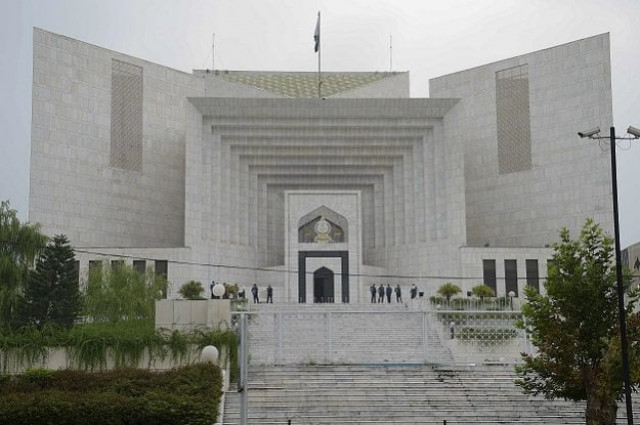Can not dispense justice if false testimonies, witnesses presented, says Justice Khosa
Legal fraternity debates over high acquittal of death row prisoners by special bench

PHOTO: FILE
A three-member bench, headed by Justice Khosa, heard the case pertaining to convicts Arshad and Rizwan who murdered Haji Ahmad Khan in Sahiwal in 2009. The trial court holding proceedings gave the accused death sentences, while the high court gave them life-imprisonment.
LHC chief justice uses Rs24m government vehicle, SC told
However, the top court dismissed the pleas pertaining to the extension in life-sentences of both covicts. The court ruled that the high court's life sentence still stands.
"Should we be perceiving false witnesses as true? False testimonies are made despite being under oath, and then justice is demanded through false means," Justice Khosa remarked. "False witnesses should be sent to jail directly."
The acting CJP observed that in seven of Punjab's districts, trials reach conclusions in three days, but the court system has become so paralysed that statements to be recorded under 342 of the CrPC take 15 days to complete.
"Previously, judgments and verdicts would be one or two pages long, and now verdicts of 100 and 200 pages come out," Justice Khosa remarked. "However, we still don't understand them," advocate Latif Khosa responded. "Today, people give excessive importance to commas and full-stops also," Justice Khosa replied, in a jibe at media reports claiming Maryam Nawaz read out full stops and commas during her statement in the accountability court.
Members of the legal fraternity have also started debating on the high rate of acquittal of death row prisoners by the top court's special three-member bench, headed by Justice Khosa. The fraternity ascribed the high acquittal rate to the application of the principle of ‘Falsus in uno, falsus in omnibus’ (False in one thing, false in everything).
According to this principle, the evidence of a witness cannot be ruled out of consideration against the accused just because one or more accused was found innocent and was acquitted. In such situations, the court follows this rule.
Dictatorship undermined civil service structure: SC
Punjab Deputy Prosecutor-General Mohammad Abdul Wadood maintained that the bench was applying the principle that if lower courts acquitted an accused on the basis of false evidence or fake statements, the same could not be used to convict anyone else. Experts believe that the repercussions of this principle are 'profound.'
They say it will discourage complainants to nominate innocent people in murder cases. They also said the numbers of prisoners in jails would also decrease.



















COMMENTS
Comments are moderated and generally will be posted if they are on-topic and not abusive.
For more information, please see our Comments FAQ